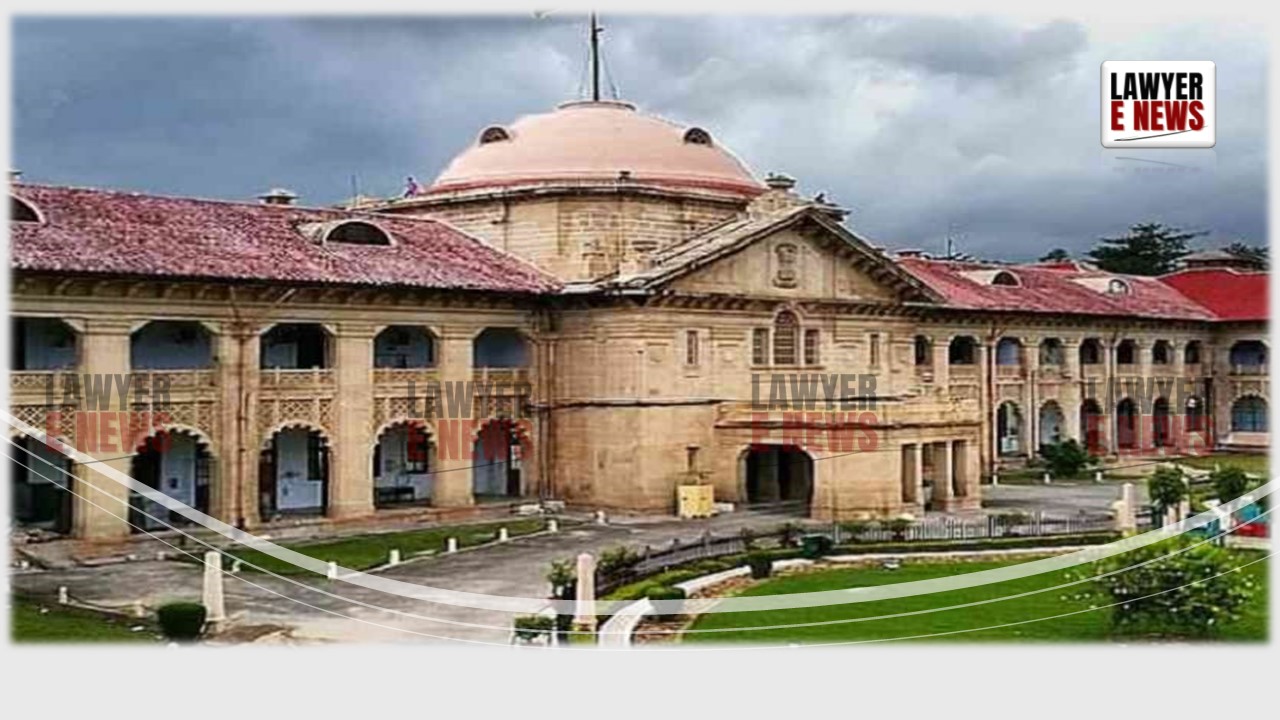-
by Admin
18 February 2026 2:25 PM



“Court Has No Power to Direct Registration of a Decree—Only Decree-Holder May Present It under Section 32” - Allahabad High Court, while exercising jurisdiction under Article 227 of the Constitution, allowed five petitions challenging a trial court’s direction to register decrees passed in 1988. The decrees pertained to immovable property which had been the very subject matter of suits concluded decades ago by way of compromise and admission. Justice Rohit Ranjan Agarwal held that such decrees are exempt from registration under Section 17(2)(vi) of the Registration Act, 1908, and the attempt to revive them in 2023 was both barred by limitation and legally impermissible.
The Court made it unequivocal: “Where the compromise relates to the subject matter of the suit, such decree is not compulsorily registrable.”
“If the Property Was Already in Dispute, No Registration Is Required for Decree”
The legal dispute originated from five civil suits filed in 1988 concerning Plot No. 51M measuring 3.15 acres in Gorakhpur. One of the suits was disposed of by a compromise decree dated 30.05.1988, and four others by admission decrees dated 12.08.1988 under Order XII Rule 6 CPC. The decrees were never questioned and attained finality.
In September 2023, a plaintiff moved an application before the trial court seeking registration of the decrees, arguing that lack of registration was hindering mutation. The Civil Judge (Senior Division), Gorakhpur, by order dated 01.05.2024, allowed the application and directed the District Magistrate to register the decrees.
The High Court struck down this direction, clarifying:“The compromise entered between the parties on 30.05.1988 was in respect of the property which formed subject matter of the suit… the said decree does not require registration.”
The Court added that Order XII Rule 6 CPC decrees passed on admission also do not fall under any class of documents requiring compulsory registration.
“Time-Barred Under Section 23—You Cannot Register a Decree 35 Years Later”
Section 23 of the Registration Act prescribes a four-month time limit for registration of decrees. Even assuming the decrees were appealable, the High Court pointed out that no appeal had been filed and the decrees attained finality decades ago.
“It was for the first time that the application was moved for registering the decree on 25.09.2023 i.e., after 35 years… which is clearly barred under Section 23.”
The attempt to resurrect a stale decree was thus found to be legally dead and beyond revival.
“Decree Registration Is a Voluntary Act—Court Has No Power to Order It”
A significant legal flaw the Court identified was the improper procedure adopted by the trial court. The decree-holder had filed an application before the court itself seeking an order for registration. This was held to be contrary to Section 32 of the Registration Act, which mandates that the decree-holder must directly approach the registering authority.
“There is no provision under which an application can be made to the Civil Court for directing the registration of the decree.”
The Court also clarified that the District Magistrate is not a registering officer, and the direction to him by the trial court was legally unsustainable.
“Necessary Parties Cannot Be Omitted—Application Itself Was Defective”
Another major procedural lapse identified was that the heirs of the deceased defendant (Surjeet Singh) were not made parties to the 2023 application. This was fatal to its maintainability.
“The petitioners, who were the necessary party, have been deliberately excluded and thus the application moved by the plaintiff was not maintainable in view of non-joinder of necessary party.”
“Registration Not Needed Where Decree Decides on Suit Property”: Supreme Court Precedents Upheld
The High Court relied on consistent Supreme Court authority to hold that no registration is required for decrees involving immovable property if that property was already in dispute in the suit, including:
• Mohd. Yusuf v. Rajkumar, (2020) 10 SCC 264
• Khushi Ram v. Nawal Singh, (2021) 16 SCC 279
• Ripudaman Singh v. Tikka Maheshwar Chand, (2021) 7 SCC 446
Justice Agarwal cited Khushi Ram with approval: “Where the decree is based on a compromise and relates to property already in dispute in the suit, such a decree is not compulsorily registrable.”
The High Court decisively concluded that the trial court’s order directing registration of decrees passed in 1988 was without jurisdiction, procedurally flawed, and legally unsustainable.
“The application for registration filed after 35 years, without impleading necessary parties, and contrary to the Registration Act, was not maintainable. The impugned order dated 01.05.2024 cannot be sustained.”
Accordingly, the petitions were allowed and the trial court’s order was quashed.
Date of Decision: May 2, 2025
